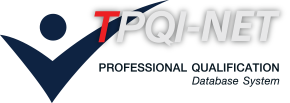หน่วยสมรรถนะ
Maintain basic light aircraft engines and propellers.
สาขาวิชาชีพการบิน
รายละเอียดหน่วยสมรรถนะ
| 1. รหัสหน่วยสมรรถนะ | AVT-EYZG-216A |
| 2. ชื่อหน่วยสมรรถนะ | Maintain basic light aircraft engines and propellers. |
| 3. ทบทวนครั้งที่ | / |
| 4. สร้างใหม่ |
|
ปรับปรุง |
|
| 5. สำหรับชื่ออาชีพและรหัสอาชีพ (Occupational Classification) | |
|
7232 Aircraft engine mechanics and fitters |
|
| 6. คำอธิบายหน่วยสมรรถนะ (Description of Unit of Competency) | |
| This unit of competency employs hand skills, maintenance publications, and knowledge of piston engine and system theory in the inspection, testing and troubleshooting, removal and installation of normally aspirated piston engines and engine system components during scheduled or unscheduled maintenance. This work may be carried out individually or as part of a team. | |
| 7. สำหรับระดับคุณวุฒิ |
| 1 | 2 | 3 | 4 | 5 | 6 | 7 | 8 |
|---|---|---|---|---|---|---|---|
| 8. กลุ่มอาชีพ (Sector) | |
| 10 Aircraft Mechanics | |
| 9. ชื่ออาชีพและรหัสอาชีพอื่นที่หน่วยสมรรถนะนี้สามารถใช้ได้ (ถ้ามี) | |
| N/A | |
| 10. ข้อกำหนดหรือกฎระเบียบที่เกี่ยวข้อง (Licensing or Regulation Related) (ถ้ามี) | |
| ICAO Doc 7192 / EASA Part 66 | |
| 11. สมรรถนะย่อยและเกณฑ์การปฏิบัติงาน (Elements and Performance Criteria) |
| หน่วยสมรรถนะย่อย (EOC) | เกณฑ์ในการปฏิบัติงาน (Performance Criteria) | รหัส PC (ตามเล่มมาตรฐาน) |
รหัส PC (จากระบบ) |
|---|---|---|---|
| 101319.01 Inspect and test piston engine system and components. |
101319.01.01 Isolation tags already attached to the system or related systems are checked and aircraft/engine configured for safe system inspection and operation according to applicable maintenance manual. Piston engine and components/systems are visually or physically checked for external and internal signs of defects according to applicable maintenance manual while noticing all relevant work health and safety (WHS) requirements, including the use of material safety data sheets (MSDS) and items of personal protective equipment (PPE). |
101319.01.01 | 199291 |
| 101319.01 Inspect and test piston engine system and components. |
101319.01.02 Aircraft and engine are correctly prepared according to applicable maintenance manual. Assistance is provided with engine and/or system operation during prescribed test procedures to ascertain serviceability and correct function according to applicable maintenance manual. |
101319.01.02 | 199292 |
| 101319.02 Troubleshoot piston engine. |
101319.02.01 Available information from maintenance documentation and inspection and test results is employed, where necessary, to assist in fault determination. Maintenance manual fault diagnosis guide and logical processes are employed to ensure efficient and accurate troubleshooting to line replacement level. Specialist advice is attained, where required, to assist with the troubleshooting process. |
101319.02.01 | 199293 |
| 101319.02 Troubleshoot piston engine. |
101319.02.02 Piston engine faults are located and the causes of the faults are clearly identified and correctly recorded in maintenance documentation, where required. Fault rectification requirements are determined to assist in planning the repair. |
101319.02.02 | 199294 |
| 101319.03 Remove and Install piston engine and engine system components. |
101319.03.01 Aircraft is prepared and supported and rendered safe according to the applicable maintenance manual and isolation tags are attached, where necessary, to ensure the safety of personnel and freedom from damage during engine removal. Removal is performed according to the applicable maintenance manual while observing all relevant WHS requirements, including the use of MSDS and items of PPE. |
101319.03.01 | 199295 |
| 101319.03 Remove and Install piston engine and engine system components. |
101319.03.02 Engine to be installed is checked to ensure correct part or model numbers, modification status and serviceability. Installation is performed according to the applicable maintenance manual. Support/safety equipment is removed at the appropriate time to ensure personnel safety and freedom from structural damage. Required maintenance documentation is accomplished and processed in accordance with standard enterprise procedures. |
101319.03.02 | 199296 |
| 101319.04 Inspect and maintain fixed pitch propeller. |
101319.04.01 Engine is rendered safe for propeller inspection according to maintenance manual or enterprise procedures. |
101319.04.01 | 199297 |
| 101319.04 Inspect and maintain fixed pitch propeller. |
101319.04.02 Fixed pitch propeller is inspected for security, damage and deterioration according to the applicable maintenance manual while noticing all relevant WHS requirements, including the use of MSDS and items of PPE. Metal propeller nicks and dents within damage limits are blended out according to maintenance manual procedures. |
101319.04.02 | 199298 |
| 101319.05 Remove and install fixed pitch propeller. |
101319.05.01 Engine is rendered safe and the aircraft is prepared for propeller removal according to maintenance manual or enterprise procedures. Propeller is removed according to maintenance manual procedures while noticing all relevant WHS requirements, including the use of MSDS and items of PPE. Removed propeller is tagged and prepared for transport or storage according to specified procedures. Required maintenance documentation is accomplished and processed according to standard enterprise procedures. |
101319.05.01 | 199299 |
| 101319.05 Remove and install fixed pitch propeller. |
101319.05.02 Engine is rendered safe and the aircraft is prepared for propeller installation according to maintenance manual or enterprise procedures. Propeller to be installed is checked to ensure correct part or number, modification status and serviceability. Installation is performed according to the applicable maintenance manual. Required maintenance documentation is accomplished and processed according to standard enterprise procedures. |
101319.05.02 | 199300 |
| 12. ความรู้และทักษะก่อนหน้าที่จำเป็น (Pre-requisite Skill & Knowledge) | |
|
101301 Interpret work health and safety practices in aviation maintenance |
|
| 13. ทักษะและความรู้ที่ต้องการ (Required Skills and Knowledge) | |
|
(ก) ความต้องการด้านทักษะ See Appendix A (ข) ความต้องการด้านความรู้ See Appendix A |
|
| 14. หลักฐานที่ต้องการ (Evidence Guide) | |
|
(a) Performance Evidence |
|
| 15. ขอบเขต (Range Statement) | |
|
(a) Recommendation |
|
| 16. หน่วยสมรรถนะร่วม (ถ้ามี) | |
| N/A | |
| 17. อุตสาหกรรมร่วม/กลุ่มอาชีพร่วม (ถ้ามี) | |
| N/A | |
| 18. รายละเอียดกระบวนการและวิธีการประเมิน (Assessment Description and Procedure) | |
|
• The assessment are based on combination of paper exams, interviewing, and practical demonstrations depending on the assessors’ judgement. |
|
